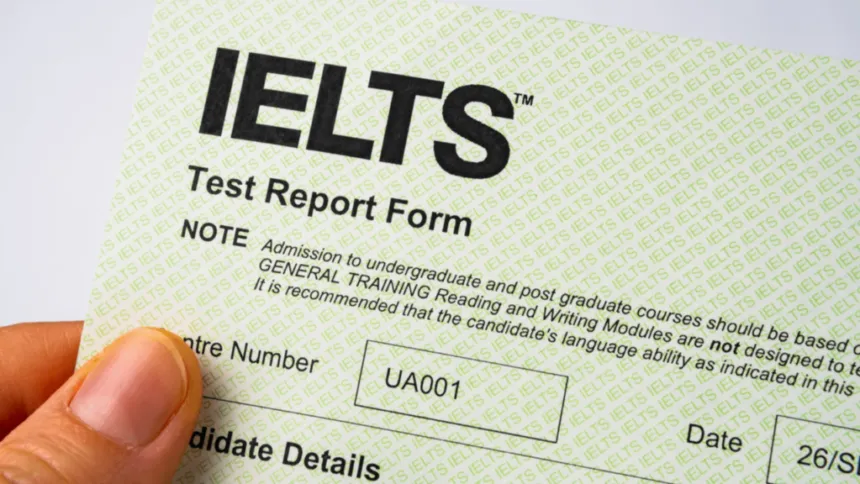What You Need to Score Band 7+ in Each IELTS Module

Scoring Band 7 or above in IELTS is no walk in the park. It requires precision, planning, and a performance-driven mindset. Many candidates chase that elusive Band 7 score, especially if immigration, university admissions, or professional registration hangs in the balance. But what exactly does Band 7 mean in each section? What separates a Band 6.5 from a rock-solid 7?
This guide dissects each module with laser focus. It will help your IELTS coaching in Dubai.
Listening – Sharpening the Ears for Accuracy
To achieve Band 7 in Listening, one must become an attentive hawk. The IELTS Listening module consists of four sections. These grow increasingly difficult. Band 7 candidates demonstrate solid comprehension across all four.
What the Examiners Expect:
You must answer 30–32 out of 40 questions correctly. That allows for a maximum of 10 mistakes, but ideally fewer.
Action Plan:
- Cultivate focus. No time exists to zone out. Just one missed keyword can unravel the rest.
- Get used to different accents. British, Australian, Canadian – they all pop up. One must not flinch when dialects shift.
- Predict before you hear. Scan questions in advance. Guess what kind of answer will fit – number, name, verb?
- Avoid spelling traps. Misspelling an answer equals losing a point. No exceptions.
- Write while you listen. There’s no rewind button. Multi-task like a seasoned professional.
Golden Tip:
Listen to TED Talks, BBC News, and academic podcasts daily. Listen not for entertainment, but for structure, tone, and inference. Extract meaning like a linguist. That habit builds stamina.
Reading – Comprehending the Text Jungle
Band 7 in IELTS Reading demands quick thinking and ruthless time management. Three long passages wait like literary beasts. They eat up time if you let them.
What the Examiners Expect:
You need 30–32 correct answers out of 40. The level of difficulty in Academic IELTS is higher than General Training, but the scoring scale stays consistent.
Action Plan:
- Skim first, scan second. Get the gist, then laser in for answers.
- Practice matching headings. This confuses many test takers. It requires an understanding of the main idea – not just keywords.
- Master True/False/Not Given. These questions are psychological traps that test critical thinking.
- Never overthink. The answer is always in the passage. It’s not a philosophy test.
- Learn to paraphrase. IELTS never repeats text exactly. A synonym in the question means a synonym in the passage.
Golden Tip:
Train with a timer. Each reading passage deserves no more than 20 minutes. 17 minutes for answering and 3 minutes for reviewing.
Writing – Crafting Words with Purpose
The writing module is where dreams get crushed. Many candidates score 6.5 here – just half a step short of glory. The bar for Band 7 is high, but not unreachable.
What the Examiners Expect:
Band 7 writers show clear structure, varied vocabulary, and logical development. Grammar errors appear, but they are minimal and do not impede meaning.
The writing module contains two tasks:
- Task 1: Visual description (Academic) or letter (General)
- Task 2: Essay
Task 2 carries double the weight, so treat it like a final boss in a video game.
Action Plan:
- Understand task achievement. Don’t just write a lot. Address the topic directly and stick to the point.
- Use linking phrases smartly. However, therefore, in contrast – these are your allies. But don’t overuse them.
- Show range in sentence types. Not everything should start with “I think.” Vary your sentence openers. Toss in passive voice sparingly.
- Master paragraphing. A proper essay must include: introduction, body (2–3 paragraphs), and a crisp conclusion. No exceptions.
- Don’t use informal language. You’re not texting your friend. “Gonna,” “wanna,” “kinda” are all fatal errors.
Golden Tip:
Get feedback. One cannot spot their own errors easily. A tutor, friend, or AI tool can highlight blind spots. And always proofread – that Band 7 hides in the final edit.
Speaking – Speaking with Style and Substance
Many fear the Speaking test. But confidence can turn this from a nightmare into a stage performance.
What the Examiners Expect:
Band 7 speakers use fluency, coherence, vocabulary range, and grammar control. There’s no need to sound like Shakespeare, but stammering is not acceptable.
Action Plan:
- Fluency first. Speak without long pauses. Even if your grammar isn’t perfect, rhythm matters more.
- Don’t memorise answers. Examiners smell canned responses a mile away. Be authentic.
- Use descriptive language. Don’t just say “good.” Say “outstanding,” “thrilling,” “mildly amusing,” or “unforgettable.”
- Stretch answers. One-word replies kill your score. Expand thoughts. Add personal stories, reasons, and examples.
- Practice with a timer. Part 2 of the Speaking test requires a 2-minute monologue. Practice thinking and speaking on your feet.
Golden Tip:
Record yourself speaking. Then play it back. You’ll notice filler words like “um,” “like,” and “you know.” Cut them, and you’ll sound clearer and smarter.
Common Pitfalls to Avoid
Even strong candidates stumble on simple traps. Below are common Band 7 killers:
- Ignoring the question. Always answer what is asked. Not what you wished was asked.
- Poor time management. If you spend too long on one section, the others suffer.
- Overuse of big words. Vocabulary is important, but don’t sound like a thesaurus.
- Mechanical responses. IELTS is not a machine test. Inject some personality, especially in Speaking and Writing.
- Skipping mock tests. Real practice simulates real pressure. Without it, test day hits like a truck.
Final Thoughts: Band 7 is Not a Dream
Band 7 is not for geniuses. It’s for prepared, focused, and persistent learners. It’s not about luck. It’s about showing the examiner that you understand, organise, and express yourself in English like a capable communicator.
To join IELTS coaching in Dubai, contact EnglishWise. You will be happy you chose them, as their teaching methods are quite student-friendly. Good luck!





